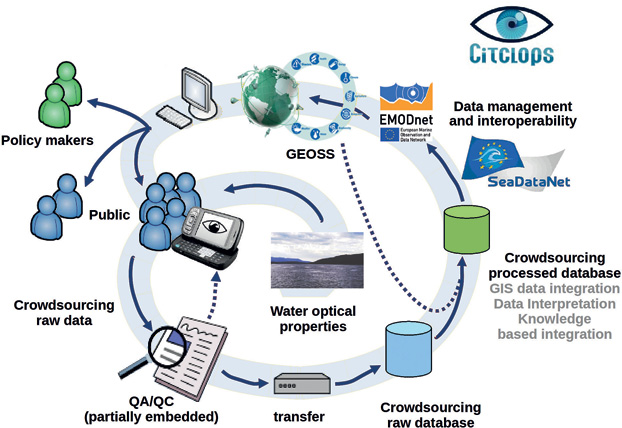Stakeholder engagement in Citclops
Strategies to promote public engagement, involvement and participation in decision-making processes include information dissemination (e.g., to increase environmental awareness); information exchange; and inclusion of a variety of stakeholders in all project phases. Stakeholder engagement in Citclops often consists of events held in public spaces that are accessible to schools, local citizens, policymakers and tourists and thereby act as multipliers to approach citizens and engage them in environmental stewardship. At these events, citizen science measurement principles are introduced with hands-on materials and technology, for example, with a colour wheel with different standardised water colours, a Secchi disk to measure water transparency and smartphone apps. Visitors are informed about the citizen science initiative and encouraged to engage in environment monitoring with smartphones. Elements from these events including the training materials and supporting technologies are then transferrable to other citizen science initiatives, as well as to other media, such as websites. In Citclops, different stakeholders are engaged at different phases as discussed below (see figure 14.2).

